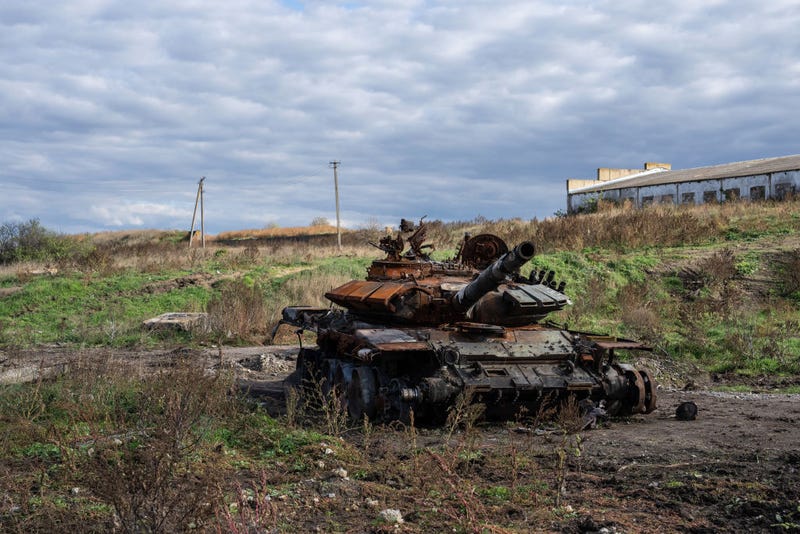
The United States Ambassador to Ukraine is visiting Minnesota farmers today to raise awareness about food insecurity only being made worse by the war in Ukraine.
Minnesota Farmer's Union President Gary Wertish tells Vineeta Sawkar on the WCCO Morning News it's more important than ever to support Ukraine.
"You know, as farmers we always have problems to deal with, you've got weather, you've got the markets," says Wertish. "Farming is a tough business and as we're doing our business we don't need to worry about running over a landmine or things like that. So it's definitely a struggle over there and it really needs to come to an end. I really think that's primarily why we're trying to bring awareness of the importance of Ukraine to the world."
Wertish says the war is causing food insecurity around the world, particularly in Africa.
"The African markets are really depending on the food that comes out of there, but it's affected us here, and agriculture within the United States," says Wertish.
Wertish says politics needs to be put aside and the war needs to come to an end.
Meanwhile, growing numbers of ships are streaming toward Ukraine’s Black Sea ports and heading out loaded with grain, metals and other cargo despite the threat of attack and floating explosive mines. It’s giving a boost to Ukraine’s agriculture-dependent economy and bringing back a key source of wheat, corn, barley, sunflower oil and other affordable food products for parts of Africa, the Middle East and Asia where local prices have risen and food insecurity is growing.
“We are seeing renewed confidence among commercial operators keen to take Ukrainian grain cargoes,” said Munro Anderson, head of operations for Vessel Protect, which assesses war risks at sea and provides insurance with backing from Lloyd’s, whose members make up the world’s largest insurance marketplace.
Ihor Osmachko, general director of Agroprosperis Group, one of Ukraine’s biggest agricultural producers and exporters, says he’s feeling “more optimistic than two months ago.”
“At that time, it was completely unclear how to survive,” he said.
Since the company’s first vessel departed in mid-September, it says it has shipped more than 300,000 metric tons of grain to Egypt, Spain, China, Bangladesh, the Netherlands, Tunisia and Turkey.
After ending the agreement brokered by the U.N. and Turkey, Russia has attacked Ukraine’s Black Sea ports — a vital connection to global trade — and grain infrastructure, destroying enough food to feed over 1 million people for a year, the U.K. government said.
The risk to vessels is the main hurdle for the new shipping corridor. Russia, whose officials haven’t commented on the corridor, warned this summer that ships heading to Ukraine’s Black Sea ports would be assumed to be carrying weapons.
Ukrainian President Volodymyr Zelenskyy said that allies had agreed to provide ships to help his country protect commercial vessels in the Black Sea but that more air defense systems were needed.
“Air defense is in short supply,” he told reporters Saturday at an international food security summit in Kyiv. “But what’s important is that we have agreements, we have a positive signal and the corridor is operational.”
Since the war started, Ukraine has struggled to get its food supplies to countries in need. Even during the yearlong U.N. deal, when Ukraine shipped nearly 33 million metric tons of food, Russia was accused of slowing down ship inspections required to be done by all sides.
The Associated Press contributed to this story.
